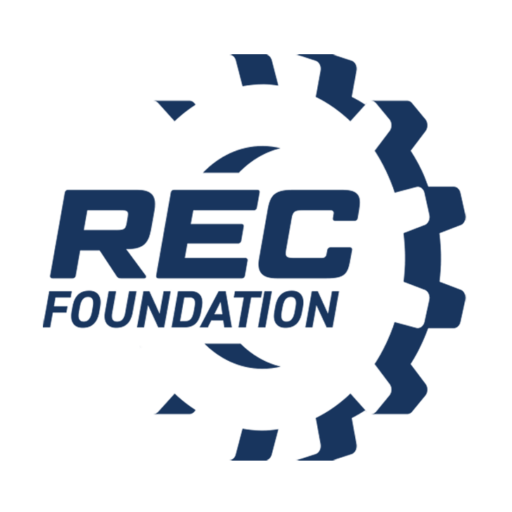Road to VEX Worlds is a weekly series featuring teams on their path to Louisville, Kentucky, on April 20-23, 2016, to compete with 1,000 teams from nearly 30 countries under one roof for one epic celebration as we crown the World Champions!
We recently spoke with Teams 9364 and 9364B members Noah, Ross, Will, and Olivia from Brentwood Academy in Brentwood, Tennessee about friendship, early morning PE class, and the joy of “Smokey and the Bandit” references.
REC FOUNDATION: How did you get involved in robotics?
ROSS: My Freshman year in high-school I was building a synthesizer with the co-coach of the robotics team and he told me that I should try it out. I was hesitant at first but once I saw how it works and what goes on, I was hooked.
NOAH: I wanted to do something with a group of people who love nerdy things. I saw the Pioneers from the year before and thought that it looked interesting and that I might be okay at it. I almost quit the first day, but I decided to stick with it, and I’m so glad I did. Now I want to do this for the rest of my life.
OLIVIA: I heard about the program at our school that had just started and was interested.
WILL: Our school physics teacher, Mrs. Stallings, announced a meeting about the fledgling robotics program at Brentwood Academy. The 2014-15 season was only the school's second year in VEX. There were workshop days that summer, and I instantly became attached to the program. Now I’m nearing the end of my second season and it’s been great.
REC FOUNDATION: What is your role on the team?
OLIVIA: I am mainly a builder; I love working with my hands. Apart from the building I also work on the engineering notebook (with my Inventor CAD skills) and scout teams at tournaments.
WILL: I was the programmer on my team, 9364B. I first took this mantle because no one else was willing to do the work associated with programming, but I enjoyed it so much that it ended up being my “job” on the team.
ROSS: My role in the team is the driver and builder. I have always loved to build things and it seems to be a natural talent of mine to drive so these roles are perfect for me.
NOAH: I am the team captain of the robotics program at Brentwood Academy. I also am the programmer, the primary driver, and a builder of the 9364 robot.
REC FOUNDATION: What were some of your biggest challenges this year?
WILL: One of my biggest personal challenges this year was learning the programming needed to be successful at Worlds. It was very hard to do this, as I am easily frustrated, and when something doesn’t work, as it so often goes in programming, I tended to give up and go with an “easier” code. It was thanks to my great coaches, especially our resident expert on programming, Mr. Chris Allen, that I was taught that not everything works the first time—something that really rings true in the programming world. As I have matured, I have found it easier to navigate through the world of coding, and to remember that I must keep my cool, as there are multiple solutions to everything and it will not work the first time!
ROSS: The biggest challenge this year for me was building a flywheel that would spin fast enough to shoot full court, would not burn out, and would be accurate. We have build dozens of flywheel designs and tested them and we think after all of that time, we have found the perfect flywheel.
NOAH: This year’s game is especially difficult since there are three different objectives: lifting, full court shooting, and field clearing. This is different from last year, in which there was only lifting and cubing. This means it is even more unlikely that a team can do everything exceptionally well. For much of the year we tried to do all three, but this turned out to not be possible for us for the time being. Now we are focusing on one goal at a time, and even if we don’t get there we will be certain that our robot will be great at what it is designed for.
OLIVIA: For Worlds, our biggest challenge was our autonomous. We refined our code for months, but it still wasn't perfect. We found out our issue at Worlds; our code was too precise to work well with the given field tolerance. So since fields varied little by little, we could do nothing about it.
REC FOUNDATION: What makes the team members on your team different from others?
NOAH: We give out “cool guy” awards. We blast “East Bound and Down” on the bus on the way to competitions, and we always make sure to work in references to “Smokey and the Bandit” in everything we do.
OLIVIA: We have specific roles on our team. One codes, one strategizes, and I scout. But we all build together and bring our unique experiences to think of new designs.
WILL: One of the distinguishing factors on our team is the diversity of personality among our team members. While I was easily angered, and quick to give up if something went wrong (I’m getting better, don’t worry!), my teammate, Ross, was always calm, cool, and collected, and the two of us really balanced each other out. This dynamic allowed us to work efficiently, and it ended up being a great partnership.
ROSS: We stagger our team (Sophomore, junior, senior) so there is always experience on the team and everyone can learn from one another. We also show our dedication to the team. Three of us do a before-school PE class so that we can use our PE block to work on our robot after school every day.
REC FOUNDATION: What is one important lesson you have learned from being part of a robotics team?
ROSS: I have learned many things from my experience on the robotics team, but the most valuable thing that I have taken away from my experience is that no matter how hard and long you work, you never know what can happen. I also learned that when you work hard you will reap the benefits later on even if what you are doing fails because you gain experience and knowledge.
NOAH: I have learned that we do not have control. No matter how many thousands of hours I’ve put into our robot, you never know if the autonomous program is going to work or even if the robot starts up. The best teams have bad tournaments despite their efforts. However, this is not a bad thing. We can only find out the problems in our designs when they make themselves apparent, and it is by this understanding that we improve each competition. Keeping up the effort regardless of outcome will push you through.
OLIVIA: Failure can be good. Instead of feeling bad about it, you must face it and figure out what is wrong in order to make it right. It can be discouraging, but also can be helpful.
WILL: I think the most important lesson I’ve learned from being in robotics is that it is okay if you fail, because not doing well is a learning experience, and the things you learned from it can help you to achieve even greater things down the road. For example, we had a terrible robot in our first ever tournament. It fell apart halfway through a match. However, we learned from our failures, we won the next tournament and qualified for the state competition, and after that we were on our way to Worlds! It really goes to show that failure is just an alternate path to success.
REC FOUNDATION: What are some of your favorite moments so far in your robotics experience?
WILL: The greatest moment in robotics is when everything finally comes together and works exactly the way you wanted it to. It’s the greatest feeling to know that all the hard work paid off!
ROSS: My favorite moment so far in robotics was last year at VEX Worlds when I was fortunate enough to captain an alliance in our division. This also shows how hard work and dedication pays off in the end.
OLIVIA: It was in engineering division finals at VEX World's when they announced the Division awards. I was looking giddy, just happy about how far we had gone. My teammate mistook my glee for hope to win the Design Award. He told me to not get my hopes up and that we weren't going to win it. One second later he was proven wrong. And we even went on to win the overall Design Award at the final ceremony, after joking about winning it.
NOAH: Winning the Design Award at VEX Worlds showed me that anything is possible if you commit yourself. I couldn’t believe that we had achieved something so much greater than we had aimed for, especially since it was only our first year. Going to the dome was also amazing, as I never thought that we would be competing with the best.
REC FOUNDATION: How has your involvement with robotics influenced your career path?
ROSS: Before robotics I was considering engineering as my career, but now that I have had quality experience with engineering, it has reinforced my decision to become one. It has made me look more in depth into the career field and I think I have found my interest to be in electrical automotive engineer. I specifically want to advance the current electric car. The current batteries are very heavy so my dream is to make it more efficient by making it lighter and more powerful at the same time.
OLIVIA: I knew I wanted to go into the tech/engineering part of STEM, but not which specific field. Robotics made me rediscover how much I love building things and has led me to want to be a mechanical engineer. Through principles I have learned in robotics, I now think of prototypes of things I'd love to build.
NOAH: Before robotics I had no idea what I wanted to do with my life, but now I know that I want to be an engineer. I love everything about it and can’t wait to do it professionally. Robotics has opened the door to opportunities I never knew existed, and I’m so glad I’ve gotten to partake with my friends on this incredible journey.
WILL: Robotics completely changed what I am planning to study in college. When I was a freshman, I considered a Humanities course, because I was only average in STEM classes. However, robotics taught me that if I set my mind to something, I can achieve what I once thought was impossible. After joining robotics and being opened to the world of computer programming, it gave me a vector to enjoy my true passion that I have held ever since I was kid—computers. By learning computer programming, computers once again became my one true passion, and now I am planning to study Computer Science in college. My choice completely changed! I’m so glad I joined robotics because it showed me that there are so many opportunities in STEM fields—especially for something I am passionate about.
About Brentwood Academy's Robotics Program: The program was founded in 2013 by physics teacher Wendy Stallings. In its first year, the team of five worked very hard, winning the state competition and went on to compete in the 2014 VEX Robotics World Championship competition in Anaheim, California. In 2014-15, more than 0 students joined the program to make up six teams. For more information on the team, visit their website: http://www.brentwoodacademy.com/page.cfm?p=4524

